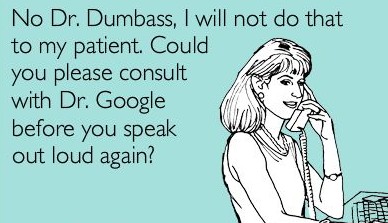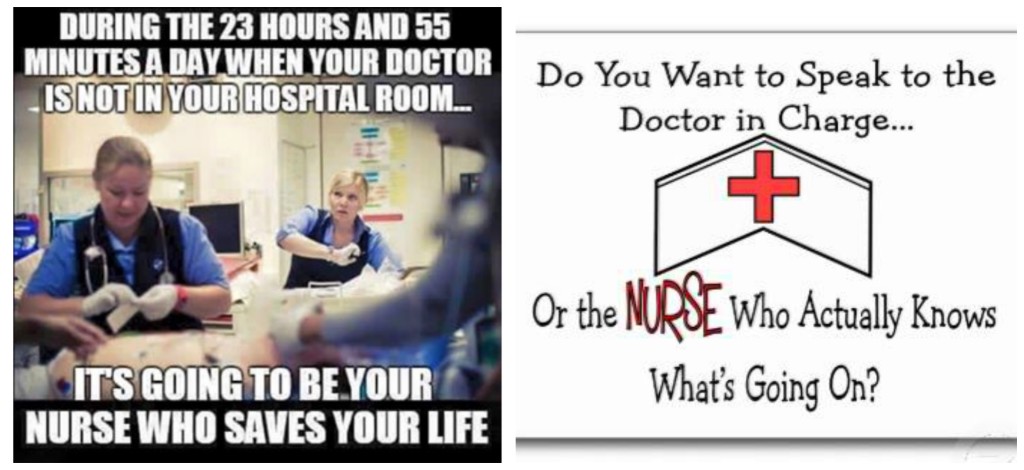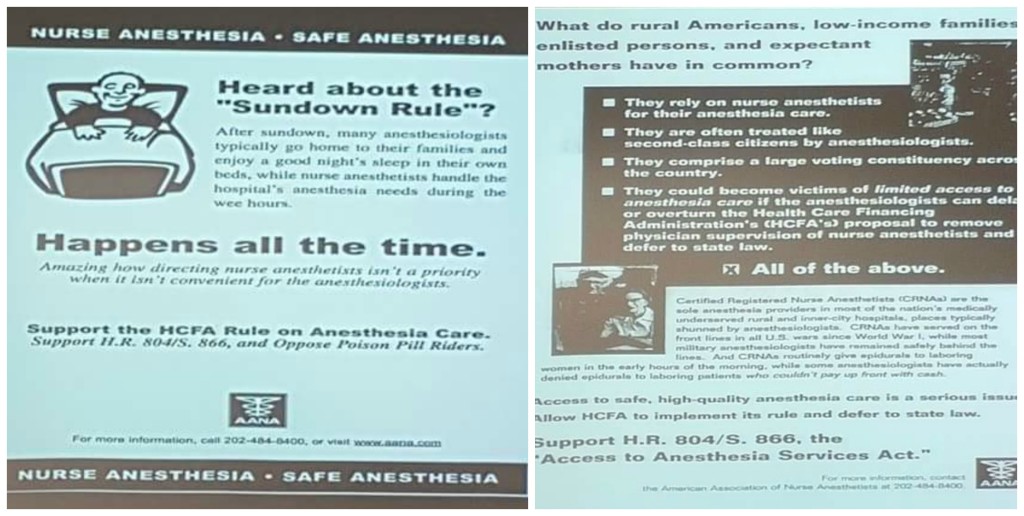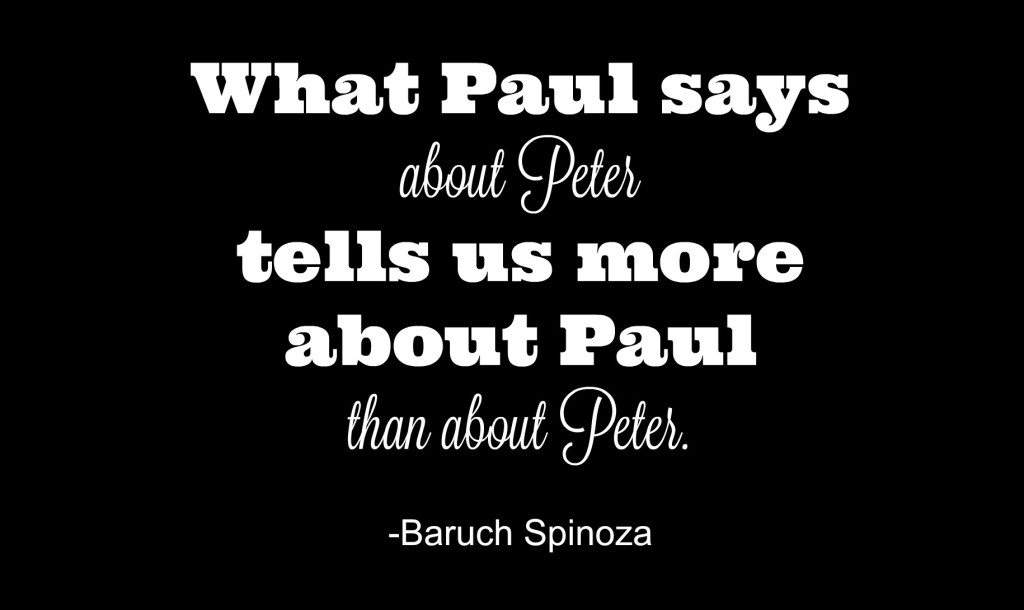This week, KevinMD will be publishing a post I wrote about inter-professional hostility in healthcare. I thought I would share some of the inspiration for that post here. Is there really an escalation of ‘scope of practice’ conflicts and a downward spiral of disrespect, or is it just more palpable in the modern era of anonymous comments and viral online posts? I don’t know for sure, but lately, the conversation seems louder to me.
(Image source: Facebook.com/WeAreNurses and www.nursebuff.com)
In my KevinMD post, I talk about physician-physician hostility as well. And while often shrouded in humor, this kind of mindset is a real threat, not only to personal and professional satisfaction, but possibly to patient safety, as it impedes open communication and mutual trust.
These kinds of barbs have been flying since at least my first day of medical school in 2003, but I’m sure they go back much further. Why is it necessary to put one group down in order to assert one’s own value? This doesn’t make sense. Skill speaks for itself. This good/bad tactic is unnecessary, and reflects poorly on those who create it. Worse, some official organizations (below, the American Association of Nurse Anesthetists) chime in with outrageous propaganda containing wildly false (sundown rule?) and offensive (we treat expectant mothers as second class citizens?) assertions:
I won’t hide that the ASA has their advocacy material as well. Here’s a sample:
Quality measures, expertise, and skill of any individual is tangled up in the machine of the perioperative experience. It’s tough to measure.
Patients are complex. They show up with a host of pre-existing problems (some known, and some yet to be diagnosed), have an operation that may be short or long, big or small, have good luck or bad, and receive care from probably at least 20 different clinicians during their stay, all of whom are most likely well-trained and well-intended.
Patients are sometimes resilient and get better even when we make mistakes, and patients sometimes are so ill or injured that they simply can’t be fixed even when everything is done right.
And to some degree, it is irrelevant. I don’t need a study comparing one kind of doctor to another, or doctors to nurses, to know that all of us are worthy of basic human respect.
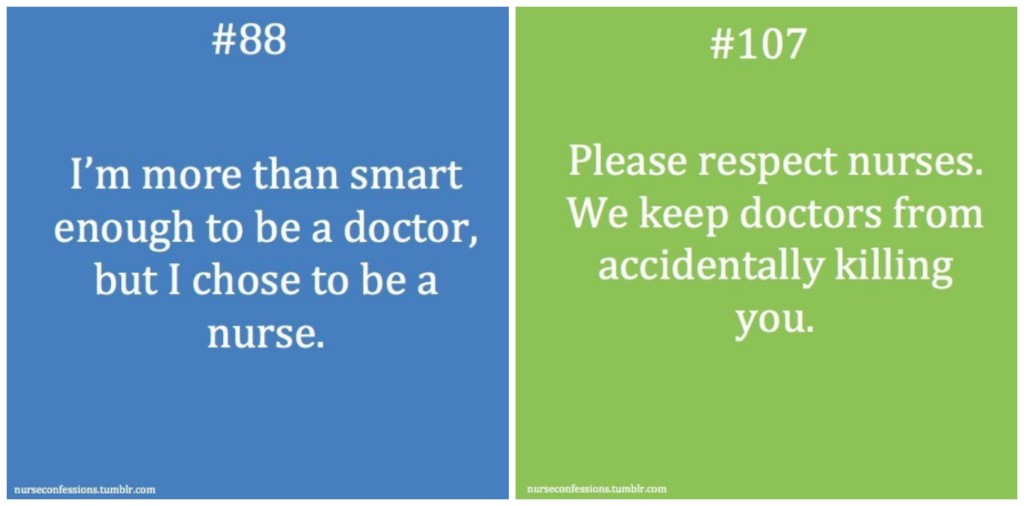
Nurses are critically important. Pharmacists are critically important, as are dentists, therapists, aides, technicians, and – dare we say it – doctors are too.
My respect for others is not based upon hours or years of training, number of nights and weekends sacrificed, or initials after our names, even though they may indeed be different.
Here’s one thing I know with conviction: we all have value. It is not necessary to marginalize each other to take pride in our own worth.
Have we forgotten? We all exist to help patients, not to put each other down in some kind of battle for supremacy.
I come to work to take care of patients to the best of my ability. I can’t do it without the rest of you, and from time to time, you can’t do it without me.
We are all in this together. Let’s start acting like it. Please join me by leaving your comments below.


